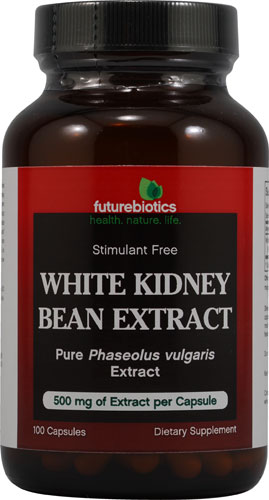It can be tricky to control your weight during food-centric holidays featuring starchy side dishes and sugary desserts. Stress may also lure you to high-carb foods rich in calories.

Unless you’re following a special low-carb diet, you’re likely getting
about half your daily calories from carbohydrates (carbs). For someone consuming 2,000 calories per day, that would be 250 grams (g) of carbs.
Could so-called
“carb blocker” supplements, sometimes called starch blockers, let you enjoy carb-rich foods without the full calorie load?
Carb digestion 101
Digestible carbohydrates come in two main forms — simple or complex. Carb blockers may work on one form of carbohydrate but not others. So, it’s important to understand the difference in carb types.
- Simple carbs — Include sugar and other caloric sweeteners. They’re commonly added to candy, baked goods, ice cream, soda and other processed foods. Some simple carbs are naturally present in foods, particularly fruit and milk.
- Complex carbs — Are better known as starch and are made of longer, more complex chains of sugar molecules. They’re primarily found in grain-based foods (such as bread, pasta, cereal, crackers and snack chips), legumes (beans and peas) and vegetables (especially starchy ones like corn and potatoes).
Your body breaks down complex carbs with the help of amylase
digestive enzymes. Once starch is broken into smaller units, other enzymes finish the job.
The end result of carb digestion is single sugars that can be absorbed in your small intestine. Once you absorb the sugars, you can use them for energy or store them as fat. In other words, you glean their calories. But what if you could outsmart this system with a carb blocker?
What are carb blockers?†
So-called “carb blockers” are supplements designed to interfere with carbohydrate digestion. How do they do this?
“Carb blockers bind to the digestive enzymes that normally break down carbohydrates into smaller molecules,” says Jay Udani, MD, an internal medicine physician in Agoura Hills, California, who has coauthored several studies on carb-blocking supplements. “This may help prevent or slow the digestion of carbohydrates.”
Thwarting carb digestion may decrease the calories you get from carbs. It may also help reduce spikes in blood sugar and insulin when you eat carbs. These effects may help your weight.
The most common type of
carb-blocking supplement is made from extracts of white kidney beans (
Phaseolus vulgaris). These supplements are designed to interfere with the digestion of complex carbs.
Do carb blocker supplements work?†
Phase 2
®, a standardized extract from white kidney beans, is the most extensively studied, natural carb-blocking ingredient. Udani and other scientists looked at this carb blocker’s effects on weight and body fat in a
review of 14 human clinical studies.
The participants in these studies were overweight or obese and took at least 1,200 milligrams (mg) of the carb blocker per day for 1–3 months. Compared to a placebo, people taking the carb blocker while eating their usual diet:
- Lost an average of 2 1/2 more pounds of weight†
- Lost an average of 7 pounds more body fat (suggesting a possible beneficial shift in their body composition)†
An
earlier review of clinical studies of white kidney bean extracts didn’t consistently find they helped with weight loss. This was likely due to the variability in the quality of bean extracts tested. Moreover, bean extracts developed in the early 1980s were made with
inferior technology, resulting in limited effectiveness. Better options are available today.
Still, you should have realistic expectations.
“Like most supplements designed to help with weight, consumers tend to overestimate the benefits,” Udani says. “Don’t expect a carb blocker to help you drop 20 pounds and three dress sizes in a week. Instead, use the supplements in combination with an overall healthy change in your diet and lifestyle.”
Tips for taking carb blockers†
To get the most benefit from carb-blocking supplements, you must take them with certain kinds of meals, in appropriate doses and at the proper time.
“Carb-blocking supplements made from kidney bean extract only work if you’re eating complex carbohydrates,” Udani says. “If you’re eating a meal that contains only protein and fat, these supplements won’t do anything.”
For example, if you’re following a strict
keto diet and have a very low carb intake, there won’t be much starch for the supplement to block. That means the carb blocker won’t substantially impact the calories you get from your meal. (An exception is if you’re having a “cheat meal” higher in carbs.)
Also remember that bean-extract carb blockers only work on complex carbs, not simple carbs. So, don’t expect these carb blockers to help if you overindulge on candy, soda and ice cream, which primarily contain simple carbs.
The dosage and timing of carb blockers are also important. In
studies of kidney bean-based carb blockers, people were generally given 500–3,000 mg of the supplement per day. It’s best to split the day’s dosage over your highest carb meals.
Moreover, some
evidence suggests you should take carb blockers about 10 minutes before you eat. Udani explains that you have to allow time for the supplement capsule to dissolve in your gut. At the least, he advises taking the supplements before your first bite of complex carbs.
Carb blockers are generally well tolerated, especially after your gut
gets used to them. “There are individual case
reports of some people experiencing digestive symptoms like bloating or loose stools,” Udani says. “But, these seem to resolve after a few days of using the supplements.”
If you have diabetes, consult your doctor before taking a carb-blocking supplement.
Controlling carb intake
The goal isn’t to cut out all carbs. Remember, nutritious plant foods like sweet potatoes and blueberries are primarily made of carbs. The most important thing is to eat healthy carbs the majority of the time and limit
highly processed ones.
The recommended dietary allowance for carbs for adults without diabetes is
130 g per day, which is sometimes viewed as a “minimum daily requirement for carbs.” This is based partly on your brain’s need for glucose (carbs) for fuel.
However, your body can convert certain components of fat and protein to glucose. This is why people eating only 20–50 g of net carbs (which don’t include fiber) per day on a ketogenic diet can still fuel their brain. That said, you need to be careful to ensure you’re getting all the nutrients you need on such a restrictive diet.
If you find processed carbs like breakfast pastries, cookies and cake calling your name a little too often, you may need to tackle the cravings head on. Remember, most carb-blocking supplements aren’t formulated to help with the simple carbs found in these goodies.
To help tame carb cravings
†, try:
- Chromium — This essential mineral supports blood sugar control and proper insulin activity, which can impact cravings. Research suggests 200–1,000 micrograms chromium picolinate daily may help combat carb cravings.†
- 5-HTP (5-hydroxytryptophan) — This compound is the immediate precursor to tryptophan, an amino acid your body needs to make serotonin. When serotonin levels fall, which they’re prone to do during dieting, carb cravings can spike. Supplementing with 5-HTP may help support serotonin levels so you’re not unduly tempted by carbs.†
- Gymnema sylvestre — Compounds in this herb can temporarily block sweet taste receptors on your tongue, which may help keep cravings for sweet foods in check. For example, one study found that sucking on a Gymnema lozenge helped people eat less chocolate. Plus, the herb may help inhibit absorption of glucose (sugar) in your gut.†
- Balance — Aim for balance in your meals and snacks. Eating foods that provide protein, healthy fat and fiber supports a feeling of fullness. That could also help you kick carb cravings.
Remember, carb blockers are just one of many tools you can use to help manage your weight. You also need to watch what you eat and get regular physical activity. And, other supplements may help curb cravings for carbs.
†These statements have not been approved by the Food and Drug Administration. These products are not intended to diagnose, treat, cure or prevent disease.
 Unless you’re following a special low-carb diet, you’re likely getting about half your daily calories from carbohydrates (carbs). For someone consuming 2,000 calories per day, that would be 250 grams (g) of carbs.
Could so-called “carb blocker” supplements, sometimes called starch blockers, let you enjoy carb-rich foods without the full calorie load?
Unless you’re following a special low-carb diet, you’re likely getting about half your daily calories from carbohydrates (carbs). For someone consuming 2,000 calories per day, that would be 250 grams (g) of carbs.
Could so-called “carb blocker” supplements, sometimes called starch blockers, let you enjoy carb-rich foods without the full calorie load?



